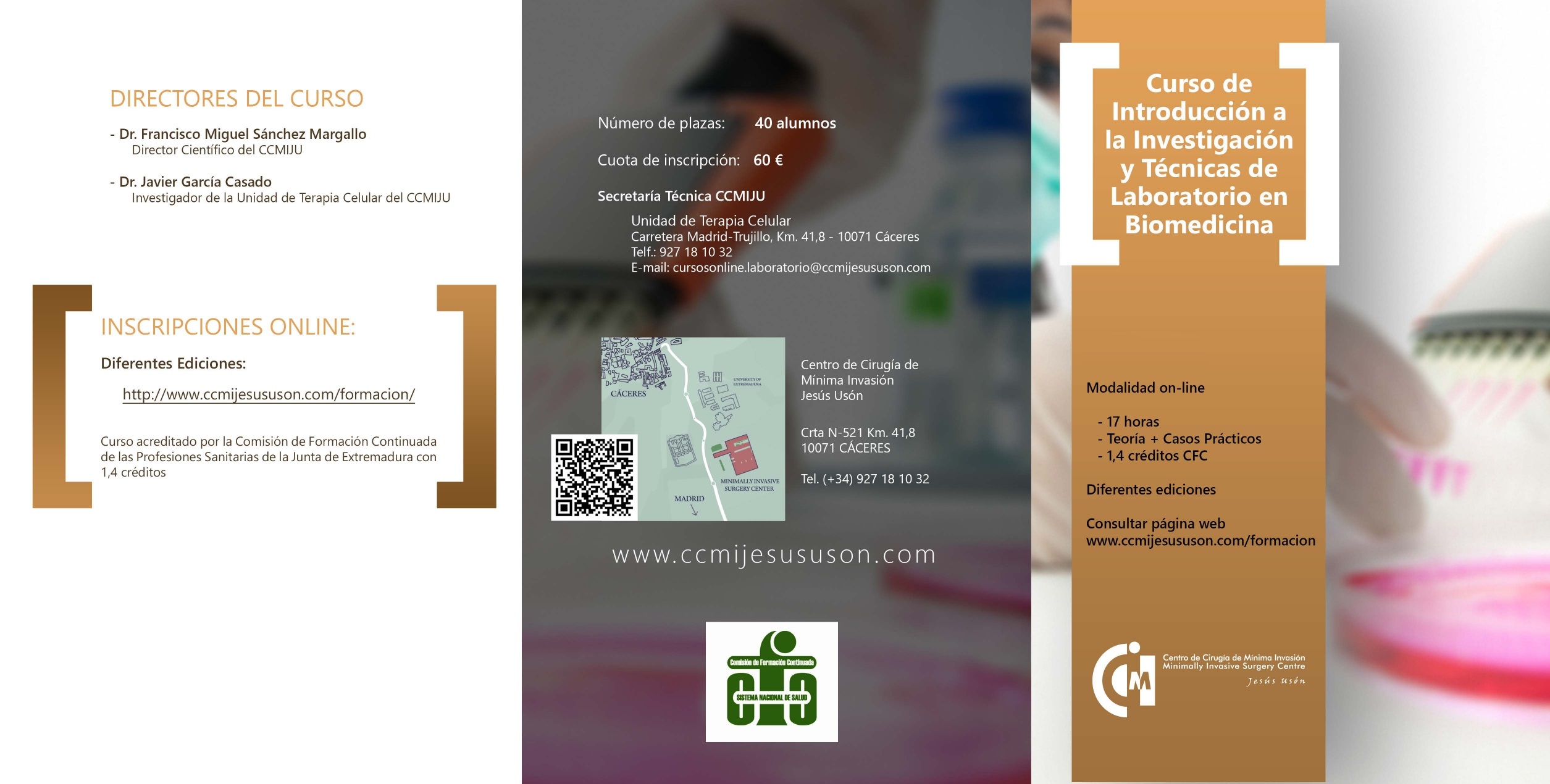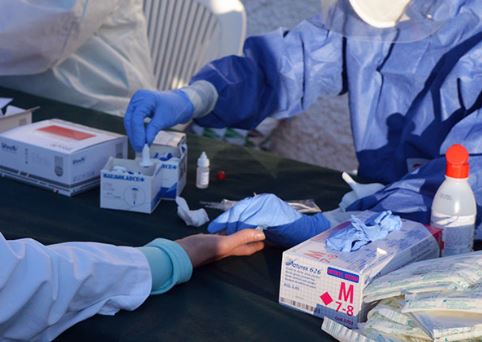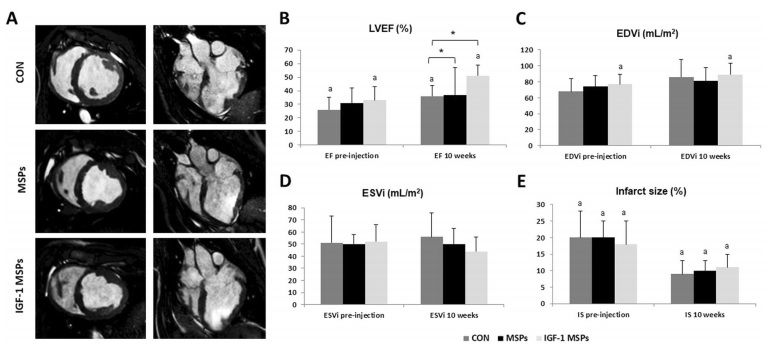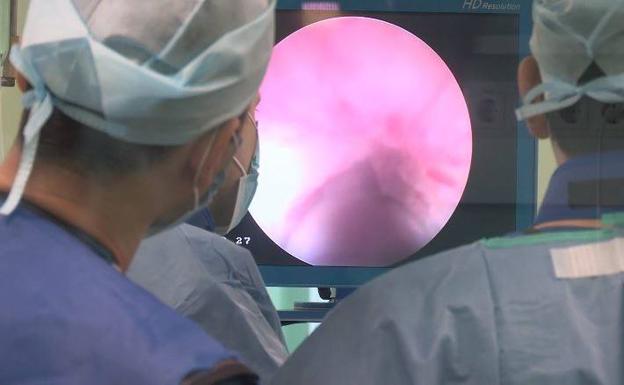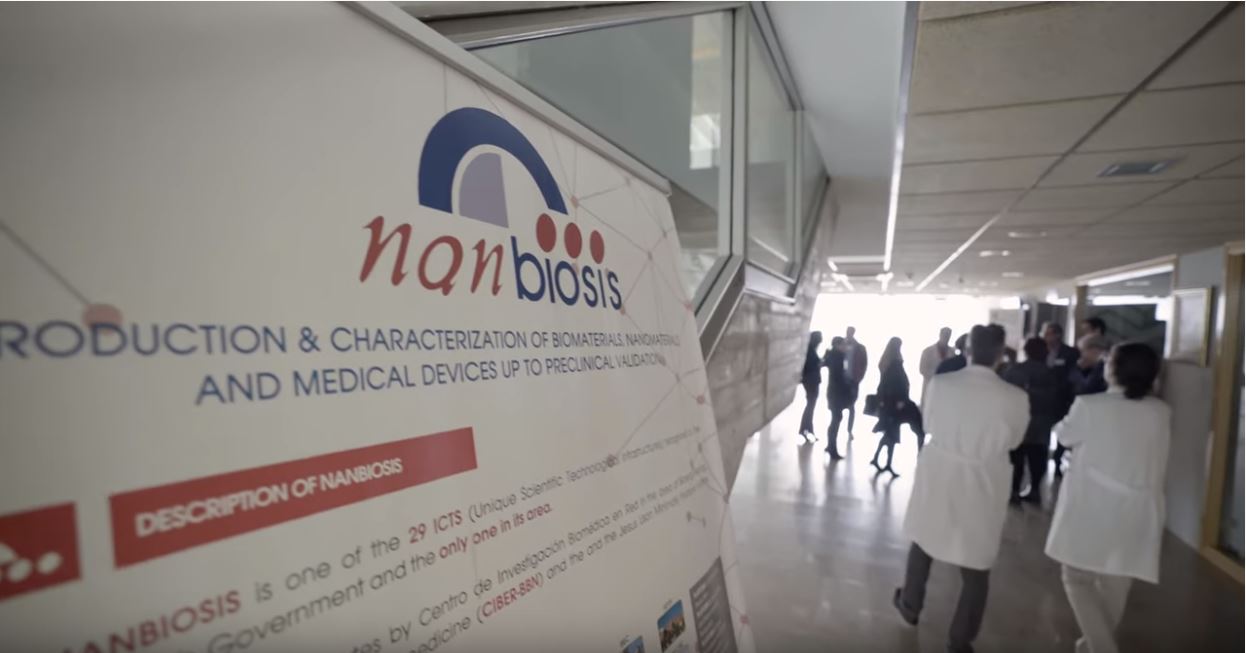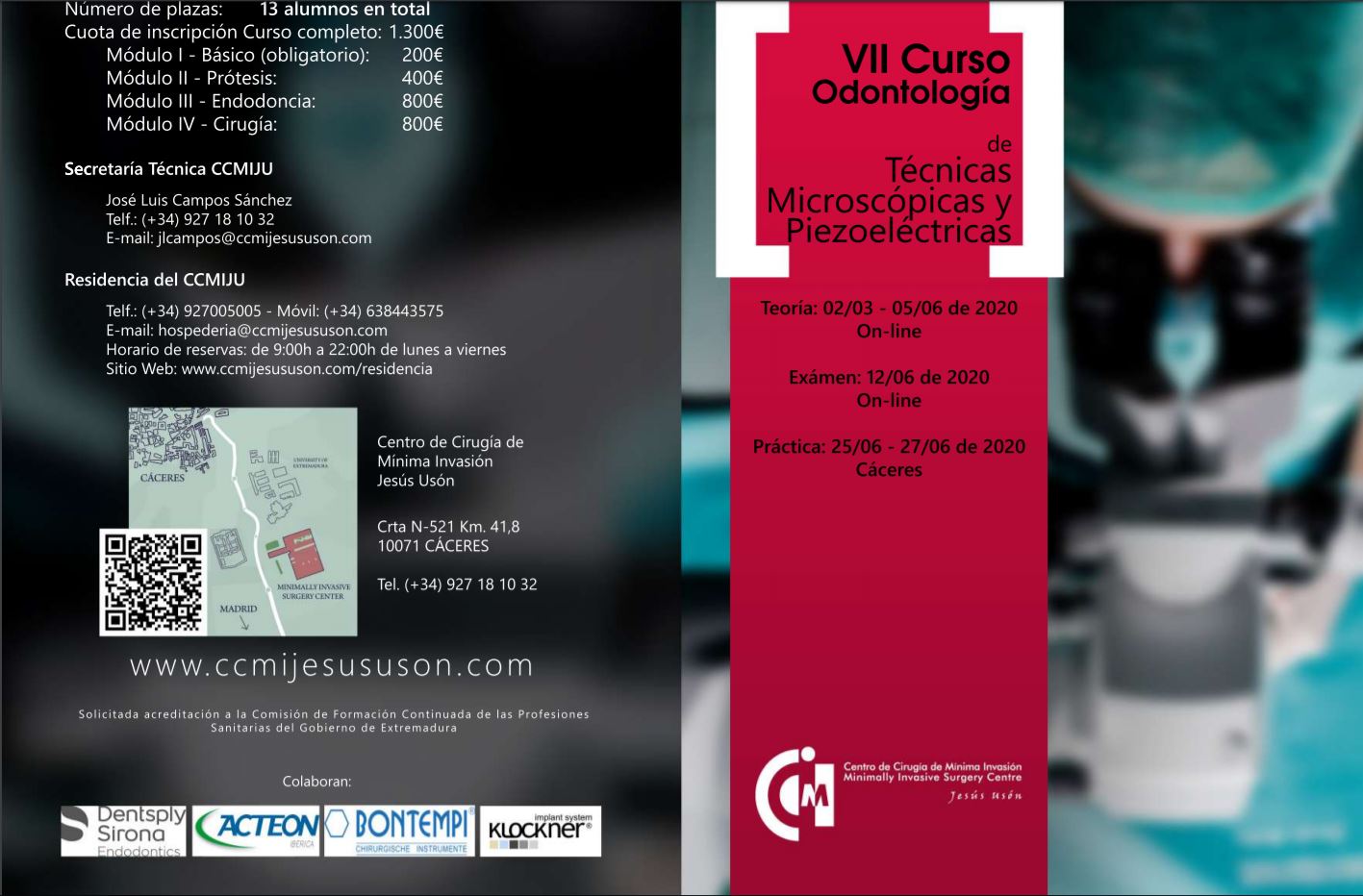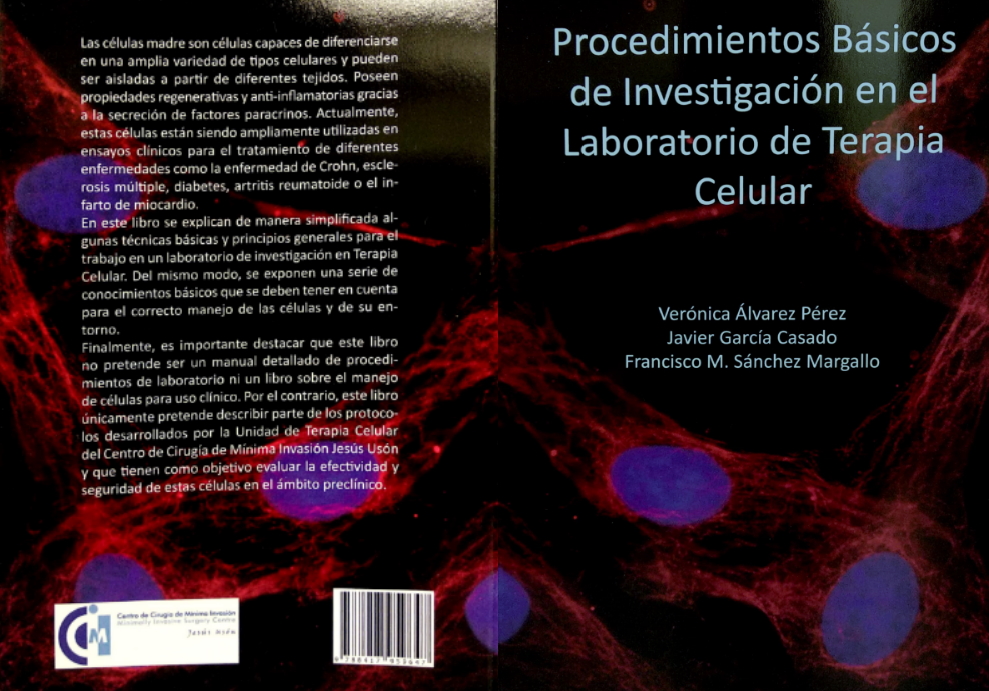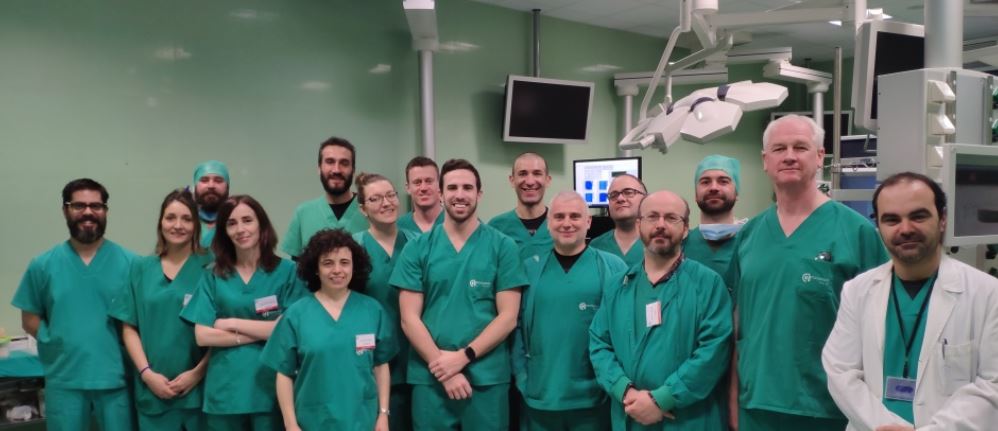II Course on introcuction to research and laboratory techniques in biomedicine
JUMISC has organised the Course on introcuction to research and laboratory techniques in biomedicine which wil take place during the month of July, co-Directed by Francisco M. Sanchez Margallo, Deputy Scientific Director of NANBIOSIS and Javier García Casado, Scientific Director of NANBIOSIS unit 14 Cell Therapy.
Further information and programe: here
Inscriptions: here
